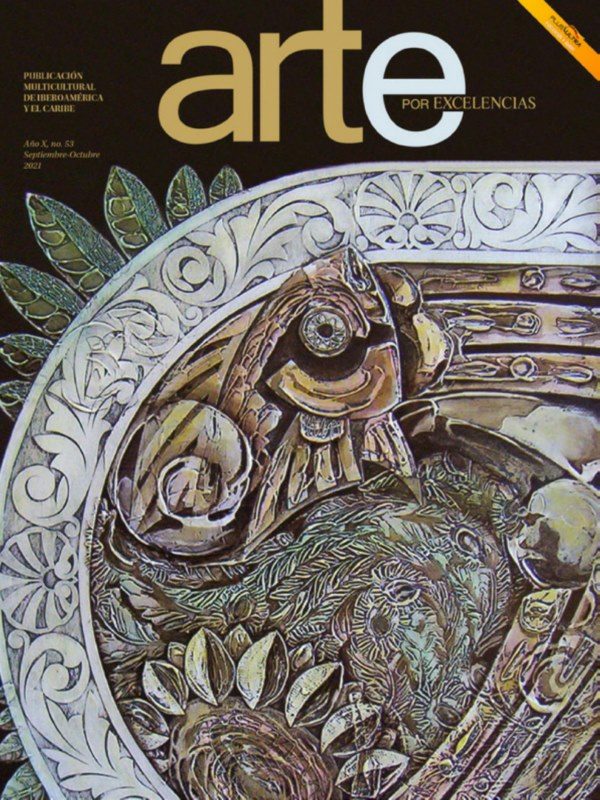 I am in January 1974. I descend the ladder of an airplane from the CSA airline in Budapest, capital of Hungary. The direction of the magazine El Caimán Barbudo, where I work as editor in Havana, has appointed me to write some stories and reports about "the role of youth in the development of the Hungarian socialist culture". Incredible topic. I bring with me, as if it were one of the ten commandments, the words of the head of cultural affairs in the Union of Young Communists of Cuba, who took special effort to warn me: "You're going to Hungary after an incident that occurred with a translator.You will have to work hard and never give in to temptation. "
I am in January 1974. I descend the ladder of an airplane from the CSA airline in Budapest, capital of Hungary. The direction of the magazine El Caimán Barbudo, where I work as editor in Havana, has appointed me to write some stories and reports about "the role of youth in the development of the Hungarian socialist culture". Incredible topic. I bring with me, as if it were one of the ten commandments, the words of the head of cultural affairs in the Union of Young Communists of Cuba, who took special effort to warn me: "You're going to Hungary after an incident that occurred with a translator.You will have to work hard and never give in to temptation. "
Already in the crowded airport waiting room, without even recover from the currents of cold air that had shaken me on the airstrip, I see a girl with a runway walk and fame ever seen in my life that turns to me. She stops by my side to ask me, almost in my ear: ". You are Omar, aren´t you? I am Nadia. Colonel and I were expecting you." I looked surprised around and I said, "How is it possible that this woman has recognized me and know my name? A colonel? Why? Is it the situation so serious?". Then the officer said a few words of welcome and became interested in the travel, hospitality and difficulties with Czech language --during the scale I did in Praga-- and Hungarian, now that he was in Budapest. I said some silly things to get by, not having the faintest idea of those languages and only jabbered some English and some Russian (I had been part of a mandatory choir that sang only in that language, there in Vueltas, my native town). But people told me never uttered a single word in Russian in either country, or I could be declared persona non grata, and English either, since it is resented by certain officials. "NINCH paprika", something like "Nothing with hot pepper" was all he knew in the language of Attila Jószef, the great Hungarian poet. With such cultural and linguistic insecurity, I was prepared to unveil the oval magyar of my Cuban contemporaries.
In that context, enthralled by the looks and gestures of Nadia and no sleep since leaving Havana, the only thing I managed to do was to boldly forget everything and think and think about what the official from the UJC had told me ("When you do not know, do not ask, speak of literature that is your thing"). And that was when I spoke of Pablo Neruda for the first time, who Nadia and her father had met in Madrid and Colonel had read in Moscow. Finally, a common scenario early appeared: the poetry.
That was my first trip abroad and, as much as I was lectured in Havana, no one matched to describe accurately the Hungarian climate at that time of year. Everything they told me it was well below the reality, and the suit I had bought at the International store and the turtle neck sweater I wore under my shirt were so inappropriate that I felt the cold in my bones. As it was dark blue and it was winter season, I did not wear the corduroy sack that my mother had done and brought for me when the entire family came to say goodbye in Havana. But, after all, luckily I took it with me.
My host was the chief editor of the magazine Lobogó, ascribed to the patriotic-military organization of Hungary and probably related to the famous football club of the same name. Zoltan was his name and had the look of a good man, although with his leadership in decline. He did not know much of Latin America, and about Cuba he knew as much as I of Hungary only that in his case certain prejudice prevailed. About poetry, besides Neruda he had read Sándor Petofi, Attila József and Vladimir Mayakovsky. He did not know who César Vallejo was, and he vaguely remembered the name of Nicolás Guillén. He had read and recited by heart full passages of Reportaje al pie de la horca, by Julius Fucik. Thank God I had read and studied thoroughly the book at the University of Havana. There was another territory that was common to us: the work and example of a journalist.
But with Zoltan not everything was hunky-dory. In matters of policy we had very little overlap, as the first and only time we spoke of Che Guevara. His vision of Cuban history and culture was rather Manichean, leading him to situate us regularly out of context or forget about important nuances like our uniqueness in the Western Hemisphere. And not just him, also those responsible for youth organizations from the Hungarian Socialist Workers Party. Hence the ambiguity (would that be really a mistake?) To assign us not to a literary magazine, but to a patriotic military one. They thought, so I was told, that alligator meant Cuba, and bearded rebels, army, fighters ... they were right, and that was not a disgrace for us, only that confusion was the result of ignorance and clichés. In fact, another evidence emerged: we were not as famous as we thought we were in Havana.
With Nadia everything was sensual, even the way her ignorance was showed. Her favorite subjects were sex, travel and fashion. About the last one, I knew little; the second, almost nothing, and the first, every time I was about to speak, my throat knotted, having to take into account the warning people made me in Havana about "never give in to temptation." And Nadia all the time with her eyes, overflowing like a fountain in spring. But "Do not be surprised at all ...".
The ambiguity in my care took almost six days --my trip was just a week--, which I tried to make the most profit. I attended a seminar on the life and work of King Matías Corvino, also known as El Justo, father of the Renaissance in Hungary, whose library was so famous and abundant that only became overcome by the Vatican at the time. I visited countless historical sites, including the first monument to Matías. I attended a military parade. I walked two elite units of the Hungarian Army and the Warsaw Pact. I sailed in a ship-school for the Danube and finally, I flew by helicopter the great plain of the Magyars, where once had razed the Romans, Vandals, Huns, Aranos, Avars, Turks and Austrians, not to mention less distant calamities.
At the end of the fifth day of the tour, we walked back to the hotel under a stubborn drizzle, I wanted to know why Nadia had identified me with such a degree of accuracy in the lobby of the airport on the day of my arrival. She took care of all my concerns in the most terse and unforgiving way: "The flap and model". Fifteen days ago I received another Cuban delegation and they all came with the same costume. Holy Remedy: I went to my room and hide the jacket at the bottom of the suitcase, making the promise of never wearing it again. The next day I had no choice but to go out wearing the blue jacket my mother had made for me. And such was the commotion I caused in the hotel on waiters, Nadia, Zoltan, János and young people in their seventies of the Union of Writers --¡finally a poet, a novelist, a dilettante - that I was about to introduce a new fashion in Budapest: the use navy blue jackets during the crudest Hungarian winter. Back in Cuba, I gave the suit to my brother, but I made the mistake of telling him the story. He never wear it to the point that yesterday, while verifying some information for this chronic, he confessed that still remained in the old showcase of mahogany, but riddled with termites, moths and other forgotten insects.
When I returned to Havana and the director of El Caimán Barbudo and other companions of the UJC read my trip report and I called a meeting to explain what happened, all I managed to say was that Hungary was very beautiful, which had portentous women and that anyone in Cuba knew more than I of King Matias, alias El Cuervo, El Justo and El Sabio. Moreover, neither Buddha nor Pest, though probably Nadia and some other unseemly flap. It was not until today that I made the task of writing a chronicle with pleasure about my unexplained Hungarian adventure. A pity that forty years have passed and a sea of things that no one remembers.






